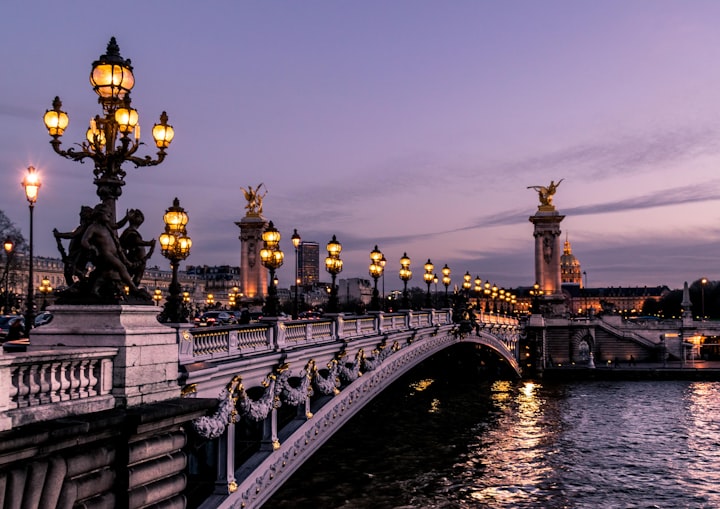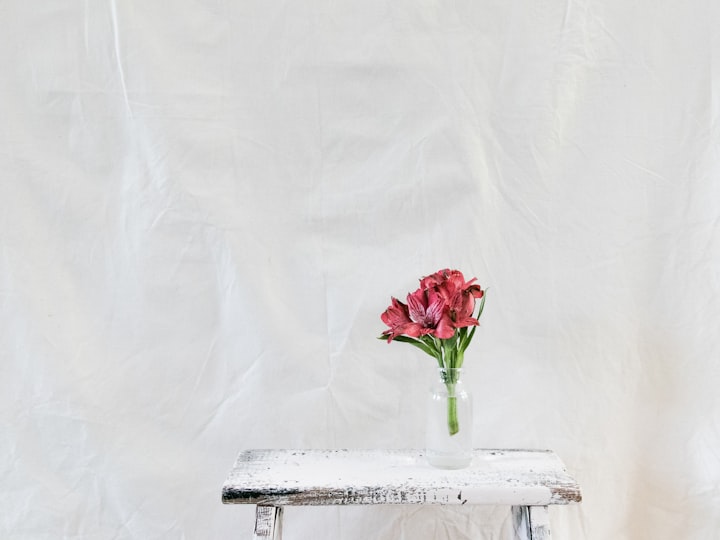
In May she decided she needed to tackle his study. She broached it over their elevenses—pistachio macaroons today—and Peter looked alarmed.
“I know it looks like a disaster, but I know where everything is.”
“I won’t touch any of the papers or books,” Sarah promised. “I’ll just dust and hoover.”
He flapped his hands, unsure, and Sarah just waited. Then he laughed as she’d known he would and said, “Look at me, Sarah. I’m like an old woman. Go ahead. Dust and hoover away. And if you put the paper into piles, I won’t mind.”
She felt as if he were showing her another and more private part of himself as she stepped into the study. He hadn’t thought to leave the room so she moved around him as he cleaned, strangely conscious of him: the wispy hair, the pushed-up glasses. Did he even need them? He never seemed to actually wear them, just left them forgotten on his forehead.
“How’s the book going?” she asked as she tidied a few stray papers into a pile and he shook his head.
“Not very well. I can’t read my own handwriting. I took some of these notes ages ago.” He smiled wryly. “I’ve been wanting to write this book for about twenty years.”
“No time?” Sarah surmised, and he nodded.
“I was going to write it when I retired, but then Rachel got sick and…” He stopped, staring down. “There didn’t seem to be much point, after awhile.”
“I’m sorry,” Sarah said quietly, and he looked up, those faded blue eyes suddenly bright.
“It must have been hard, losing your parents so young.”
She nodded, her throat suddenly tight, her eyes stinging from the obvious sympathy she saw in his own.
“You can always tell when someone knows about loss,” he said quietly. “How did they die?”
Sarah swallowed hard, clenching the dust cloth in her hand. “A terrorist bombing of the Embassy in Ethiopia.”
“My God—” Peter stared at her, appalled, before he slowly shook his head. “I remember reading about that. Quite a few Britons died—”
“Seventeen.”
He shook his head slowly, absorbing all she’d said, all it meant. “I know it doesn’t help,” he finally said. “But I’m sorry.”
She smiled a bit shakily, blinking hard. “Thank you. And you’re wrong—it does help. In a way.”
“Yes,” Peter agreed quietly. “In a way.”
She wanted to ask about his wife then, and how Peter had coped with her illness, but she wasn’t used to asking such familiar, even intimate questions, and the words lodged in her throat in a burning lump, and then as the silence stretched on the lump dissolved along with the impulse to ask, and after a moment she gave him another awkward smile and then left the room to tidy elsewhere.
She made his favorite dish for supper that night; this was, she supposed, the way she communicated. Not with words, but with acts of service. She made cottage pie, with grated cheese sprinkled on the top, and a crisp salad to go with it. She left the pie in the warming oven of the Aga, hung a damp tea towel to dry over the railing, savoring these small, simple pleasures marred only by the knowledge that she would be leaving soon, for a bowl of soup heating up on a gas ring and a lonely evening in her bedsit.
But she’d be back here tomorrow, she reminded herself; perhaps she’d make biscuits in the morning.
Outside it was still light, the golden syrupy light of a spring evening, and as she bustled about the kitchen, putting away a few mugs, wiping down the worktops, she knew she was stalling her departure. She didn’t want to return to her bedsit, to spend the empty evening hours alone, reading a book or listening to music. Those long, lonely nights felt like a daily prison sentence, a payment for the time she spent here.
Occasionally she thought about making an effort to get to know people, carve out a social life, but the truth was she did not know how even to begin such a thing. Where did you go, to meet like-minded people? What did you talk about, when you finally met them? Her own ignorance shamed her.
She’d met a girl at the local supermarket in town once; they’d chatted for a few minutes in the checkout aisle. Then the girl had waved, slung her canvas bag over her shoulder, and walked off jauntily into the night. Sarah had wondered where she was going, who she would see. How did you go from chatting about the price of frozen pizza to something significant or real? There seemed to be an impossible chasm between the two.
Peter came into the kitchen, humming under his breath, stopping suddenly when he saw her. “Oh—it’s gone six. I thought you’d left.”
“I should have,” Sarah said hurriedly. She usually left by half past four. “Sorry. I lost track of time in the garden and was late finishing your dinner.”
Peter bent his knees—they cracked as he did so—and peered into the warming oven. “My favorite,” he exclaimed in a tone of such boyish delight that Sarah smiled. He glanced at her, eyebrows raised. “Why don’t you share it with me?”
“I couldn’t—”
“Why not? Do you have plans?” He looked disappointed, as if he expected her to, and she imagined the kind of plans she could have: going out with a girlfriend, having a drink at one of the trendy pubs with a terrace that overlooked the river. It was that kind of evening. “No,” she said. “No plans.”
“Then why don’t you join me? There looks to be enough for two.”
There was, and she’d wondered if she’d made more on purpose, if she’d been hanging around wanting and waiting for him to invite her, at least subconsciously. The realization was an uncomfortable prickle between her shoulder blades; was she taking advantage of him, as the villagers seemed to think? And yet the prospect of dinner with someone, of staying in this warm, cozy house for a few more hours, was far too appealing to resist. “All right,” she said, “if you don’t mind.”
“I certainly don’t.”
It was such a lovely evening Peter said they should eat out in the garden. It became a bit of a production, lugging out a table and chairs from the conservatory, and then all the dishes. Peter brought out a bottle of wine and two glasses and for some reason Sarah blushed.
“The first picnic of spring,” he said, and opened the bottle with a flourish. Sarah took the glass with awkward pleasure; it was so lovely sitting out among the trees and rosebushes that were just beginning to bud. She felt a happiness so intense it almost hurt over all the simple things she enjoyed: the decadent scent of lilac on the air; the birds twittering in the trees above them; the sky slowly darken to violet and then indigo; eating the food she’d prepared herself and drinking the rich, velvety wine.
“Do you have many picnics?” she asked as Peter poured her another glass. She was starting to feel deliciously and a bit dangerously relaxed; she held her glass at an angle and watched the lights from the house gleam on the crystal.
“Rachel was the one for picnics,” Peter said. He didn’t sound sad, simply matter of fact. “She was one of those people who got up and did things. Organized us all. A bit like you, really.”
“Me!” Sarah put down her glass and shook her head, enjoying the feel of her hair tumbling about her shoulders. “I’m not like that at all.”
“Aren’t you?” Peter gazed at her with something that looked and felt like compassion, or perhaps just understanding. “Sometimes I don’t think you see yourself at all.”
It felt like such a weirdly intimate thing to say that Sarah had no response. She just shook her head again, and felt that first betraying sting of tears, and wondered why after a year—a lifetime—of numbness, she felt as if she were coming to life now, and it hurt.
“It’s getting dark,” Peter said, and rose from his chair. With a rush of disappointment, Sarah realized the evening was over. He’d said too much, perhaps, and regretted it. He went into the house and she was about to rise herself when he returned with a pair of tall, creamy candles in ornate silver sticks.
“Wedding present,” he said. “Rachel loathed them. Too fancy.”
“They’re very nice,” Sarah said, “but I can see what she meant.”
She watched him light them, felt as if they’d entered a new, deeper understanding, although she could not name it. The candlelight flickered over his face as he cradled his wineglass between his two hands; his fingers, Sarah saw, were quite arthritic, but his hands were nice and not too veiny.
“Do you miss her as much now as you did when she first died?” she asked quietly, and he started, surprised by the question, just as Sarah was surprised she’d asked it. But she wanted to know the answer, wanted to know if his experience of grief was similar to hers.
“Yes,” Peter said slowly, “but it hurts less. And that’s both a relief and a sorrow in itself.”
“Yes,” Sarah agreed. “I know what you mean.”
“I’m sure you do. It must be very hard, to not have your parents at your age. Is there anyone else? Aunts or uncles? Brothers or sisters?”
“I have an uncle, but he emigrated to Australia ages ago. And my mother’s sister lives up in Scotland with her family, so I have cousins.” Sarah’s aunt had seemed exasperated more than anything when Sarah had seen her at her parents’ funeral, as if dying in a terrorist attack was an inconsiderate and rather stupid thing to do. She hardly ever saw her cousins; they were horsey kind of people and had always intimidated her. “No siblings,” she finished, and he nodded.
“So you’re quite alone.” She swallowed, took another sip of wine, and Peter leaned forward, his hands clasped around his knee, his wineglass dangling from his fingers. “I was too, at your age. My father was a coal miner, if you can believe it, and he died from black lung disease when I was twelve. My mother wanted a better life for me, so she sent me to a grammar school and kept her distance. It worked, I suppose, but in any case she died when I was nineteen.”
It was a curious look into a man who had seemed, on the outside, to have had a simple life, beset by only one natural grief. “And did you have brothers or sisters?” Sarah asked.
“One brother, and he took after my father, went down into the mines until the pits closed. He’s still alive, lives in Carlisle, but I never see him. But what about you? Have you made up for that loneliness in other ways, with other people?”
“I wish I had.” And then, quite surprisingly, she told him about something she had barely remembered herself: the friend Greta she’d made in Germany when she was ten, and how they’d kept in touch with letters. She’d visited Greta one summer during university and it had been horribly awkward; they’d had nothing to say to each other by then. It had, in its own way, cancelled out the childish friendship she’d felt so nostalgic about.
Admitting that confidence suddenly brought others, as if a gate had been lifted in her soul, a dam unblocked. She told him about the loneliness she’d felt in Japan, how she’d chosen a country she’d never been to on purpose, an attempt to escape her memories, but she just felt adrift and anchorless, awash in a sea of humanity with not one person who so much as looked at her. She even told him about always wanting a proper home, although she felt too shy to admit that she’d found it, at least a little bit, in his cottage.
She’d never told someone so much before, and it felt both horribly exposing and wonderfully healing. An emotional bloodletting, perhaps: painful but necessary. Peter listed to it all, nodding, murmuring just the right thing, although Sarah hadn’t even known what that was. She felt understood and accepted in a way she never had before, and she wanted to thank him for that, but somehow the right words didn’t come.
It was nearing eleven before she finally started from her chair, as if from a sleep, and mumbled something about getting home.
“You can’t bike home at this hour,” Peter said reasonably, “and we’ve had the better part of a bottle of wine, so I can’t drive you.”
“I’ll manage—”
He shook his head with the firmness of a father refusing his daughter’s ridiculous request. “You must stay over. As you very well know, the sheets on the guest bedrooms are clean.”
She smiled and stammered a bit, and then she said yes. She sat on the edge of the guest bed she’d made herself, the duvet cover crisp and starched, as Peter used the bathroom across the hall. It felt strangely intimate to hear the soft padding of his footsteps, the gurgle of the sink and the flush of the loo. When she heard his bedroom door close she got up and used the toilet herself, rinsed out her mouth with water and a bit of Peter’s toothpaste—he squeezed the tube from the middle—before going back to bed and slipping beneath the buttery-soft, well-worn sheets.
She lay there for a moment, still slightly tipsy, recovering from all the emotion of their conversation, and yet incredibly content. She wanted to take a snapshot of this moment and keep it forever; later she would take it out and look at it, savor it. With that thought still in her head she fell asleep.
About the Creator
Kate Hewitt
I am a bestselling author of both novels and short fiction. I love writing stories of compelling, relatable emotion. You can find out more about my work at kate-hewitt.com






Comments
There are no comments for this story
Be the first to respond and start the conversation.